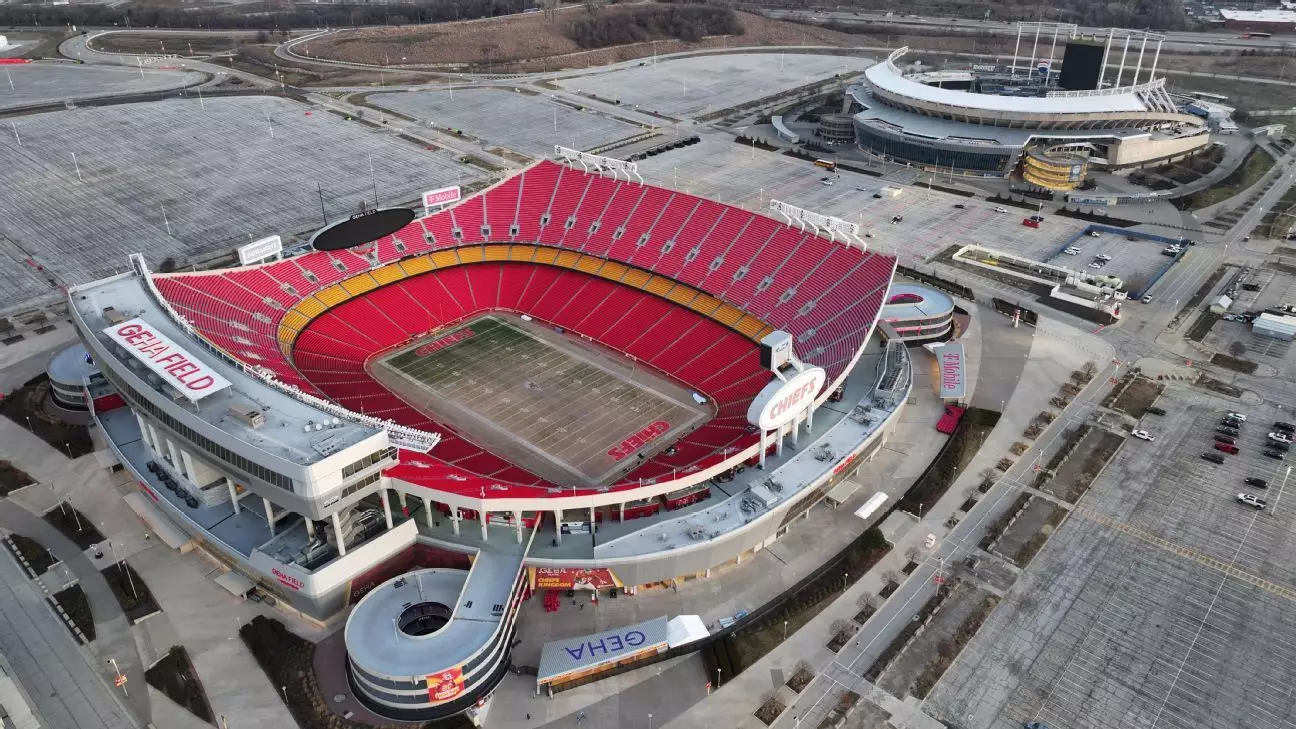In a critical response to recent devastating tornadoes that wreaked havoc in St. Louis, Missouri’s senate has swiftly approved a proposal allocating over $100 million in disaster relief. This decision comes at a moment of urgent need, as the community grapples with an estimated $1.6 billion in damages inflicted by May storms, necessitating rapid legislative intervention. The bill, however, is not merely about immediate relief; it encapsulates a broader strategic intention to retain the State’s pride in its sports franchises, specifically the Kansas City Chiefs and the Royals, both of which are under pressure to consider lucrative offers from neighboring Kansas.
A Balancing Act of Sports and Recovery Funding
The salient feature of this package is its dual focus—supporting storm recovery while simultaneously offering financial incentives designed to keep Missouri’s beloved teams within state borders. This urgency is heightened by a looming deadline that requires the Chiefs and Royals to respond to Kansas City’s competing offer by the end of June. The proposal includes a series of early-morning votes facilitated by Republican Governor Mike Kehoe, reflecting a coalition of interests from both legislative chambers eager to ensure that their sports teams don’t abandon their roots. This balancing act raises questions about priority: Should immediate human suffering take precedence over the economic allure sports teams represent?
In addition to disaster relief, the funding includes plans for substantial infrastructure projects statewide, which could bolster emergency preparedness for future calamities. Tackling the aftermath of the tornadoes is a tall order, yet lawmakers are under pressure to simultaneously strategize for long-term economic viability through sports development.
Financial Incentives – A Conditional Gamble
Missouri’s offering to the Chiefs and Royals suggests a commitment to not only match but also innovate on what Kansas proposes. With the authorization of bonds covering up to 50% of stadium construction costs, alongside $50 million in tax credits, the plan appears appealing. However, important voices in the economic landscape remain skeptical. Critics argue that public funding for stadiums often leads to an erosion of local tax bases, diverting funds away from critical public services in favor of enriching billionaire owners. This is a concerning trend that places economic development alongside ethical dilemmas.
Patrick Tuohey of the Show-Me Institute cautions against allowing the entertainment industry to leverage state resources at the potential expense of public welfare. His assessment highlights a significant truth in contemporary sports economics: investors can stimulate intense competition between cities for resources, leading inevitably to outcomes that may not be in the best interest of the public. Indeed, the pursuit of keeping teams local must be tempered with responsible governance and not at the cost of the community’s welfare.
The Role of Public Sentiment and Civic Pride
The dedication to keep the Chiefs and Royals through financial incentives taps into a deeper vein of civic pride and identity. The emotional resonance of sports—particularly in a state like Missouri with a strong allegiance to its teams—calls for a nuanced exploration of community spirit versus fiscal responsibility. Such investments are framed as essential for economic growth, enriching local culture in tangible ways. When Chiefs’ lobbyist Rich AuBuchon argues that stadium funding catalyzes economic development, it resonates with fans eager to see their teams thrive but deserves scrutiny under the microscope of economic realism.
To further complicate matters, the future of the Royals is believed to hinge on securing local voter approval—an uncertain process that adds layers to an already complex scenario. While teams extol their love for Missouri, it remains to be seen how these noble sentiments translate into actual commitments.
Looking Beyond the Storms: The Future of Missouri’s Sports Landscape
As the accelerated rebuilding efforts from the tornado disaster continue, stakeholders in Missouri must embrace both their civic responsibilities and the desire to foster long-lasting ties with their cherished sports teams. Should the state invest in stadiums now, amid recovery efforts? There exists a palpable tension between fostering local identity through sports and ensuring responsible fiscal stewardship.
Missouri’s strategy reflects a crucial juncture—a potential rebound that can redefine both the recovery from natural disaster and the essence of its relationship with professional sports. Balancing these concerns requires transparent conversations amongst legislators, community advocates, and economics experts to prevent the true needs of the citizens from being overshadowed by the glitz and billboards of the sporting world.


Leave a Reply